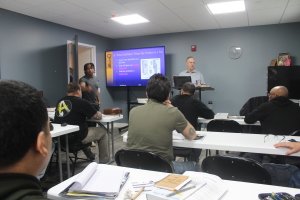Supreme Court Asked to Reinstate Partial Birth Abortion Ban
The Bush administration has asked the Supreme Court to hear a case that could reinstate a ban on partial-birth abortions and provide a glimpse at the upcoming 2005-2006 Supreme Court session, which begins on Monday.
The Bush administration has asked the Supreme Court to hear a case that could reinstate a ban on partial-birth abortions. The request was made last week, asking the Court to reverse a ruling by a federal appeals court that said banning the practice was unconstitutional.
The case could be heard by next spring and provides a glimpse at the upcoming 2005-2006 Supreme Court session, which begins on Monday. During the year, Justices are already scheduled to hear various cases involving life related issues, including parental notification for abortion, abortion protests in relation to the application of racketeering laws, and an assisted suicide case.
"This no longer puts the abortion issue in the abstract with the Supreme Court. This is as live a controversy as you can get," Jay Sekulow, chief counsel of the American Center for Law and Justice, told the Associated Press.
Abortion was one of the central topics addressed during the recent confirmation hearings for newly-installed Supreme Court Justice John G. Roberts, Jr. Now, after Roberts’ confirmation, there is still one remaining spot on the High Court’s bench that could play a pivotal role in the outcome of such case. Justice Sandra Day O’Connor, who announced her retirement in July, was considered to be a crucial swing vote in many of the Court’s 5-4 rulings.
President Bush is expected within days to make his second Supreme Court nomination, one that conservatives hope will move the court to the right. While, replacing the late William H. Rehnquist with Roberts keeps the court’s current balance, replacing the moderate Justice O’Connor with a conservative could tilt it rightward.
“I am hoping the Supreme Court will take the partial-birth abortion case because it is clear that the government does have a vital and compelling interest in preventing the spread of the practice of abortion into infanticide,” Sekulow said. “It is time for the Supreme Court to put an end to this abhorrent practice once and for all.”
The 2003 federal Partial-Birth Abortion Ban Act sought to prohibit a procedure where the fetus, usually in its second and third trimester, is partially delivered before being killed.
However, due to legal challenges the law never went into effect. The 8th District Court of Appeals based in St. Louis ruled that the law was unconstitutional because it did not contain an exception to protect the health of the mother.
The current definition of “health for the mother,” based on Supreme Court precedent, includes “emotional, psychological, familial, and the woman’s age,” as factors that determine whether the procedure should take place.
However, the federal law that Congress approved in 2003 – and that the Bush administration is trying to reinstate – only said the procedure could be done to protect the life of the mother.
To explain why the partial birth law should be allowed to stand, the recent appeal – filed by Solicitor General Paul Clement – referred to a related case in 2000.
In that year, the Supreme Court struck down a partial birth law at the state level for similar reasons. In the case of Stenberg v. Carhar, the court ruled that a Nebraska law banning certain forms of abortion was unconstitutional because the ban presented an “undue burden” on the women’s right to an abortion and did not have an exception for the health of the mother.
In the government's appeal, Clement noted the 2000 decision but said Congress determined that type of late-term abortion is not needed to preserve a woman's health.





























